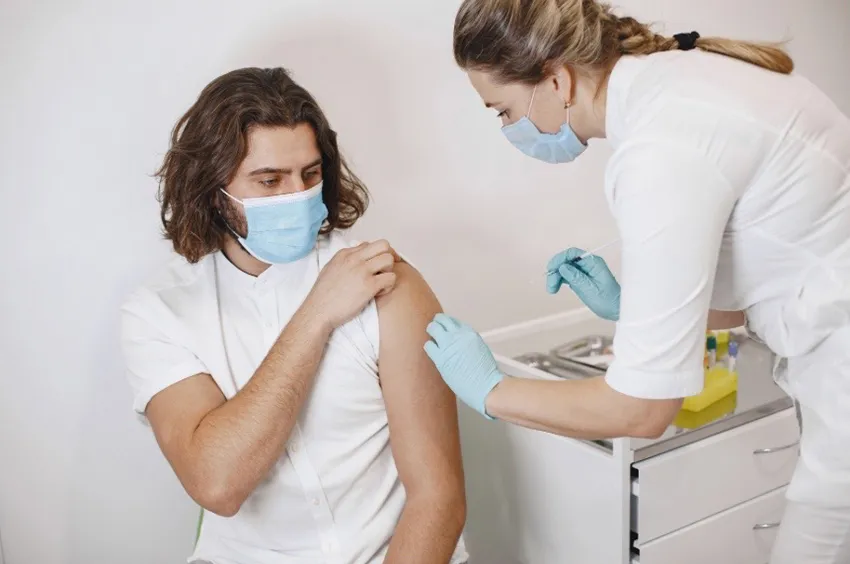Public officials with the Washington Department of Health held a meeting Monday morning with leaders of community-based organizations to discuss strategies to address the ongoing mpox outbreak in Washington state.
The meeting was led by Rael Odengo of the WSDOH, who leads the department's mpox education and outreach efforts. Attending the meeting were representatives from organizations such as La Oficina, Spokane Pride, Seattle's LGBT Center, Black Pride, the Tu Decides newspaper, Yakima Neighborhood Health Services, and the SGN. Each presented their organization's successes and challenges in addressing the mpox outbreak.
Reaching impacted communities
Remeka Jones, deputy director of Washington's Office of Public Affairs and Equity, told the group that the purpose of working with the community-based organizations was "to help to implement culturally and linguistically appropriate mpox education and vaccine outreach activities." These efforts extend to groups most affected by the mpox outbreak, including Queer people.
The meeting comes in the wake of a resurgence of infections in Washington state since the beginning of September, which the SGN reported in its November 17 issue. The count of current active cases across the state stands at 731 as of December 11, according to the tracking data available at the WSDOH's website.
Across the board, leaders emphasized the role of communities in addressing this health crisis, including the importance of health officials being able to understand those in which they work.

Albert Torres of Tu Decides, a bilingual Spanish/English newspaper, highlighted the attention his publication brings to matters of language and culture pertaining to the Latinx community. In particular, he mentioned vaccine fatigue: "One of the comments we've been hearing is that people are just, after COVID, just really kinda exhausted and fatigued from vaccines, and so one of the concerns we have also is that it's not only gonna [affect] mpox... but the main vaccines that kids need to go to school."
Matthew Danielson, executive director of Spokane Pride, described his organization's efforts to network with other local nonprofits to push for vaccinations, which includes several coordinated events throughout the year. "My key lesson was that networking with other nonprofits is kind of our superpower," he said.
Chris Newman of Yakima Neighborhood Health Services detailed the efforts of her organization to push vaccines and education in Queer, migrant, unhoused, and other impacted populations. She lauded the partnerships her organization has participated in and the work her staff has done to ensure that messaging and vaccine access makes it to those affected.
Newman expressed difficulty in obtaining vaccine supplies, and fellow attendees helped to link her to information for ordering the JYNNEOS vaccine.
Synthia Herrera of La Oficina spoke of building bridges between local officials and minority communities: "Our shared cultural and language experiences position us to connect more deeply and to earn the trust of our... audience, which is a minority community... Especially when we deal with a minority community, a lot of them struggle just on that trust aspect... they don't know who to trust, especially when they're working with the government."
Accurate and effective messaging
As each representative described their organizations' successes and challenges, themes that emerged included effective messaging, access to up-to-date and accurate data on the mpox outbreak, elevating access to vaccines and education to impacted communities, and networking with other such organizations.
In the end, public health officials emphasized a crucial fact: that the mpox epidemic is not over, and that efforts to educate and vaccinate those at risk remains a high priority.
For more information about mpox, including facts about transmission, symptoms, vaccines, and treatment, visit the Centers for Disease Control's website at https://www.cdc.gov/poxvirus/mpox
To find vaccines and treatment here in King County, contact the Harborview Sexual Health Clinic at 206-744-3590.


